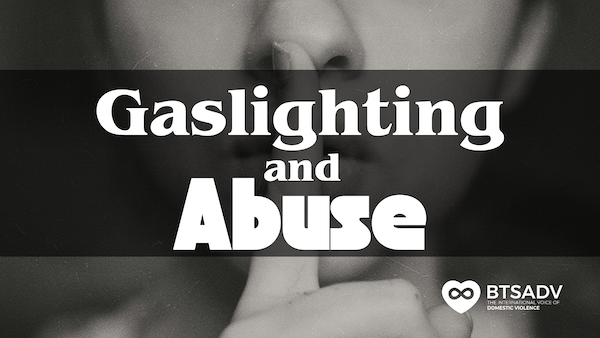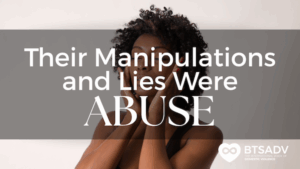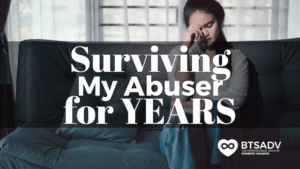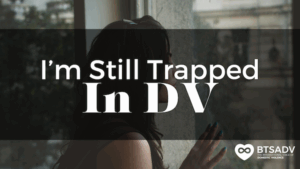By Mikayla Shave
Gaslighting is a form of conscious or unconscious psychological abuse and it typically occurs when the perpetrator distorts information to confuse their chosen victim. This can trigger the victims to doubt their own memories and feel unstable or even insane.
This form of abuse holds the potential to not only change our entire experience, but also severely damage the relationship between the survivor and mental health clinicians.
What the Professionals Say About Gaslighting
Mental health professionals rely on pathological labels to correctly design a treatment plan. When psychotherapists use those labels, the treatments often focus directly toward the problems that lie within the client. This can be disastrous for women leaving domestic violence.
If we’re recovering from trauma, approaches should come from a space of acceptance and free of judgement. When we survive violence, most people may find themselves relying on avoidant attachment styles to better reduce the feelings of vulnerability and betrayal.
If we’re getting mental health treatment and our care plan focuses heavily on what we’ve done wrong rather than why we’re responding to outside circumstances in a particularly healthy or unhealthy way, it’d be easy to feel as if we’re being judge rather than helped.
Leaving a Space of Judgement
Seeing as how we’ve likely recently left a space of heavy judgement, those feelings could trigger survivors to then leave mental health treatment and we risk repeating the cycle (Smith, 2020).
Harmful relationships can cause us to endure double-blinds and betrayal during the healing process and it’s crucial to raise awareness of how the use of pathological labels can result in harm to psychotherapy clients (Tormoen, 2019).
In August of 2018, The Atlantic published an article highlighting the phenomenon of medical gaslighting. While not directly correlated to domestic violence, it could be. Just a quick Google search reveals much of the same.
There are pages of testimonials from women recounting various healthcare encounters where their concerns were continually dismissed or invalidated by their own health-care providers.
Not Limiting Ourselves
While we usually see gaslighting discussions being limited to interpersonal relationships, there is potential for sociological analysis and data application to healthcare. Feminist scholars have been emphasizing lived experience for years and note that the personal business is political.
Further, as health research takes up the feminist theory of intersectionality, it’s equally important do justice with this theory.
Intersectionality
Intersectionality considers the multiple and overlapping social locations an individual inhabits, and how these shifting experiences of oppression and privilege reflect larger systems of social power and shape lived experiences (Sebring, 2021).
While invalidation isn’t limited to healthcare, sociological analysis holds the potential to illuminate the complexities of the issue at hand and moves beyond essential discourses to bring people together.
Medical Gaslighting
Medical gaslighting isn’t a new issue, neither is gaslighting within an interpersonal relationship. This is where autonomy comes into play.
Autonomy is a tricky thing, and gaslighting tends to remove autonomy. When an abuser, medical provider, or supervisor removes our sincerity and minimizes our feelings, we tend to doubt our own autonomy.
The ‘Big Picture’
We doubt whether we saw the ‘big picture’ or we justify their perspective based on introverted tendencies or being convinced that we’re acting irrationally. By developing a sociological framework to explain gaslighting, we’re able to draw more attention to the structural and ideological dynamics in our relationships and in our healthcare.
Gaslighting is a symptom of more severe problems and can continue to create more issues in our lives.
Sources:
Sebring, J. C. H. (2021). Towards a Sociological Understanding of Medical Gaslighting in
Western Health Care. Sociology of Health & Illness, 43(9), 1951–1964.
https://doi.org/10.1111/1467-9566.13367
Smith, A. (2020, November 12). Avoidant attachment: Symptoms, signs, causes, and more.
Www.medicalnewstoday.com. https://www.medicalnewstoday.com/articles/avoidant-
attachment
Tormoen, M. (2019). Gaslighting: How Pathological Labels Can Harm Psychotherapy
Clients. Journal of Humanistic Psychology, 002216781986425.
https://doi.org/10.1177/0022167819864258
Check These Resources:
- Therapeutic Interventions for Healing From Domestic Violence
- The Hidden Impact of Teen Dating Violence
- Find Support with BTSADV
Support Line
Other Resources and Information:



